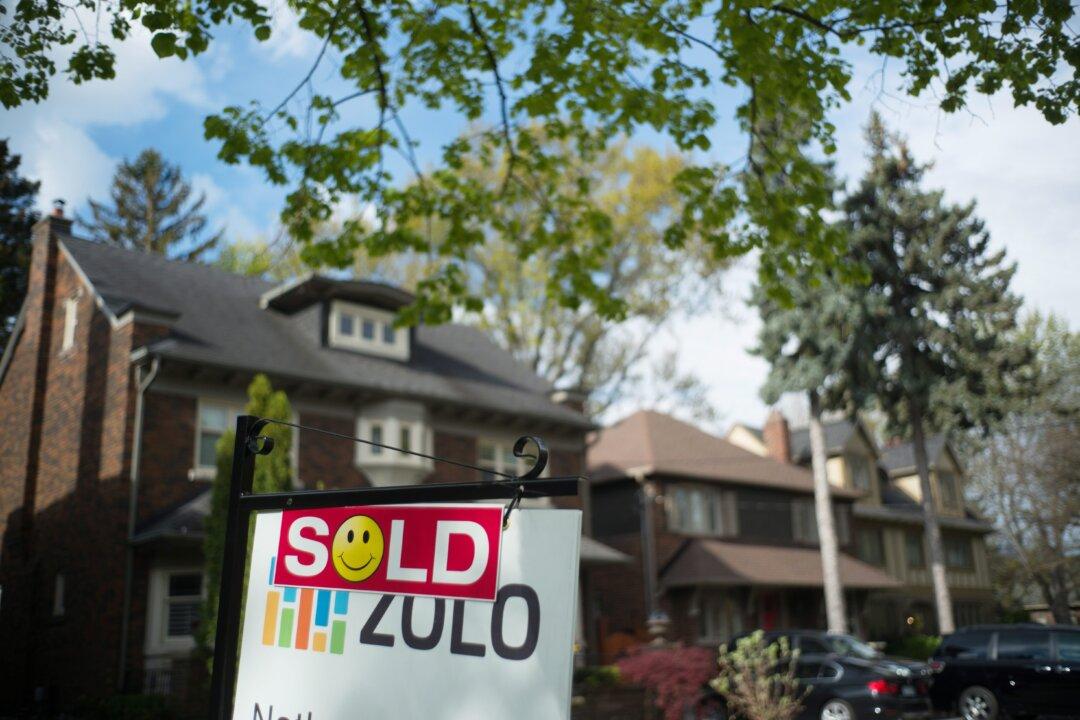The latest readings on Toronto’s housing market show definite signs of cooling, and the culprit for the extraordinary price gains—speculative investment—seems to be taking a pause. However, Greater Toronto Area (GTA) fundamentals and attractiveness to foreigners remain intact, according to real estate professionals.
On June 5, the Toronto Real Estate Board reported that May 2017 GTA home sales were down 20 percent from May 2016 and listings had shot up 43 percent. While the average sale price in May of $863,910 is up 15 percent year over year, it is down 6 percent from April.
GTA home prices began taking off in mid-2016 in a perfect storm kind of way. Prior to that, price appreciation was generally in line with low interest rates, employment, net migration, supply, and demand.
But when prices started surging north of 30 percent annually—beyond what fundamentals would dictate—policy-makers started pointing fingers at speculative investing or flipping.
On April 20, the province of Ontario imposed a 15 percent foreign buyers tax aimed at the undesirable practice. Vancouver imposed the same measure last August.
Chris Nelson, director of acquisitions and financing at Real Estate Investment Company Ontario (REICO), says speculators already cashed out when bidding wars were more prevalent a few months ago, and are waiting for the market to cool before getting back in.
“They’re moving in the opposite direction from the masses,” Nelson says in a phone interview.
Sellers are trying to get their houses sold before the market weakens further, but investment buying appears to be mostly absent.
“It’s because of the fog that those [April 20] initiatives created that make many speculators think twice before investing,” said CIBC deputy chief economist Benjamin Tal in a June 5 interview on the CBC’s “On The Money.”
The Foreigner’s View
Secular factors suggest interest in Toronto and Vancouver housing markets will continue.
“Canada is a really hospitable market,” Nelson says. He adds that late 2016 was a “unique” time for GTA housing markets because of a “confluence of different factors converging at the same time.”
Nelson points to Donald Trump’s U.S. election win, the Brexit fallout, and political instability in Europe as giving foreign investors more reason to look at Canada. Royal LePage confirmed that a surge of inquiries in Canadian real estate from Americans occurred following the U.S. election last November.
Vancouver’s housing market was starting to slow before it got hit with the foreign buyers tax. As many, including Nelson, suggest, the 15 percent foreign buyers tax then began pushing investors east to Toronto.





